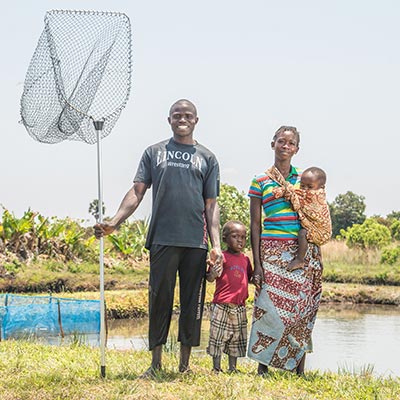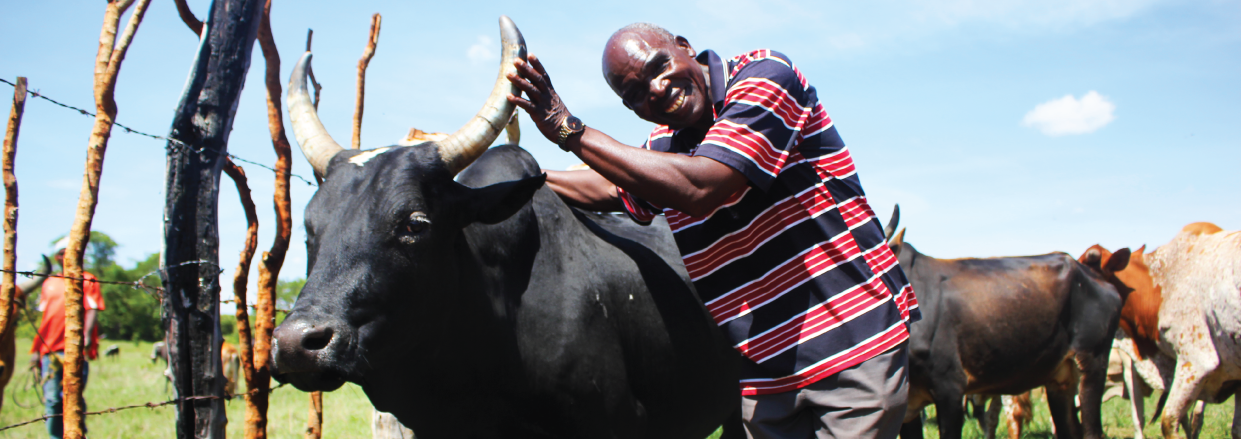
Agricultural Diversification
Decades of government policy focus on state incentives on both input and output sides have skewed smallholder agricultural production towards maize at the expense of all other crops. Almost 90% of all farmers grow maize, which accounts for 54% of the cultivated area, while the next highest crops in terms of national cultivated area are cassava with 11% and groundnuts with 7%. Only 2% and 3% is planted to soya and cotton respectively (RALS 2015).
Such a focus on one crop exposes the smallholder economy to multiple risks including economic risks around the ratio of input costs to output prices, marketing risks and, increasingly, climatic risks, especially in the southern half of the country.
Part of Musika’s Agricultural Diversification Strategy is to support the development of a conducive environment for farmer behaviour change towards a more diverse range of production options that is driven simultaneously by a retail industry that provides relevant inputs, technologies and associated information and a commodities industry that offers assured markets, extension and other market services around the production of multiple crops including the more drought tolerant legumes and cereals and high value crops such as fresh fruit and vegetables.
Within the agricultural diversification portfolio, Musika proposes a focus on the following technology areas which all fall within the climate smart agriculture (CSA) framework that includes increasing agricultural productivity and incomes in a sustainable manner, building and sustaining resilience to climate change and reducing and/or removing greenhouse gases emissions, where possible:
Livestock: The livestock market is often overlooked as an opportunity for diversification and ‘climate-proofing’ smallholder production and, other than in the dairy industry, Musika has been one of very few organisations driving a commercially orientated livestock market development agenda.
Our approach remains largely consistent with current strategies in the sector, but with a focus – based on experience of where the greatest traction lies – on bundling access to inputs (veterinary products and services, nutrition products and genetic services) with improved livestock and livestock product marketing opportunities.
Musika also focuses on driving livestock market development into areas traditionally not perceived as livestock production zones such as northern Zambia as part of Musika’s general focus on diversifying the range of opportunities to smallholders.
Alongside Musika’s existing beef and dairy market development initiatives, Musika will also actively seek investments in the small livestock sector.
Aquaculture: While volumes of farmed fish in Zambia have increased from 13,000t in 2012 to over 30,000t in 2016, this growth is largely attributed to the expansion of commercial aquaculture while the output from the small-scale sector dropped by 27% between 2011 to under 3,000t in 2014.
Aquaculture potentially offers smallholder farmers a high value, high nutrition and climate smart production option but, outside peri-urban markets where there are opportunities for interaction with private input and technology providers, extension agencies and formal output marketing channels, there is very little linkage between the farmer and private suppliers, service providers and buyers.
From the farmers’ viewpoint, access to critical inputs such as fingerlings, feed and production knowledge is low, financing opportunities are almost non-existent and access to markets is difficult, given the challenges of the cold chain and distance to market. All of these factors constrain the appetite – and the confidence – for farmers to invest their limited resources and thus smallholder adoption of aquaculture is limited.
In this relatively ‘greenfield’ sector, Musika’s focus is to increase the production and productivity of the small-scale fish farming sector by building the capacity of commercial actors along the aquaculture supply chain to deliver sustainable and profitable pro-poor market services to the sector including the provision of inputs and technologies, output marketing opportunities and extension, vocational training and technology transfer.
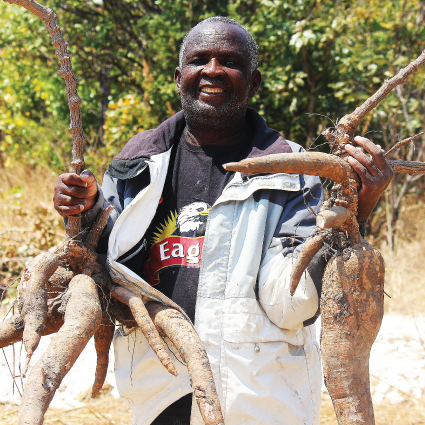 Irrigated Crops: In synergy with the irrigation component of the Agricultural Technologies portfolio, Musika has expanded its efforts to identify and support improved output marketing opportunities for high value horticultural crops and work with input suppliers and service providers to offer appropriate inputs, seedlings, etc. to the farmers operating within these market structures.
Irrigated Crops: In synergy with the irrigation component of the Agricultural Technologies portfolio, Musika has expanded its efforts to identify and support improved output marketing opportunities for high value horticultural crops and work with input suppliers and service providers to offer appropriate inputs, seedlings, etc. to the farmers operating within these market structures.
Legumes and Drought Tolerant Crops: Musika has an existing portfolio of agribusinesses providing improved market opportunities in the legumes sub-sector in which groundnuts, cowpeas and pigeon peas have proven to offer climate resilient production options that also engage large numbers of women farmers. It is also working with multiple stakeholders in the cassava supply chain, to support the formalisation of this industry that is dominated by smallholder production in the more isolated areas of the north of the country.
Tree Crops and Agroforestry: Tree crops and other perennial crops are largely more resilient to climatic variability and can provide long-term, climate smart production opportunities for smallholder farmers.
However, currently there are very few economic drivers coming from the market (either from ‘input’ markets such as nurseries or buyers of tree-based output) to encourage the adoption of smallholder tree-based production systems, exacerbated by the length of time required before such systems generate income and land insecurity issues that constrain the incentives to plant long term crops.
Therefore, within this priority sector, Musika aims to make investments across the spectrum of commercial opportunities, including trees and other perennial species for uses in timber, fruit, biomass, biofuel and fodder, and species for use in agroforestry systems that enhance arable and livestock production.

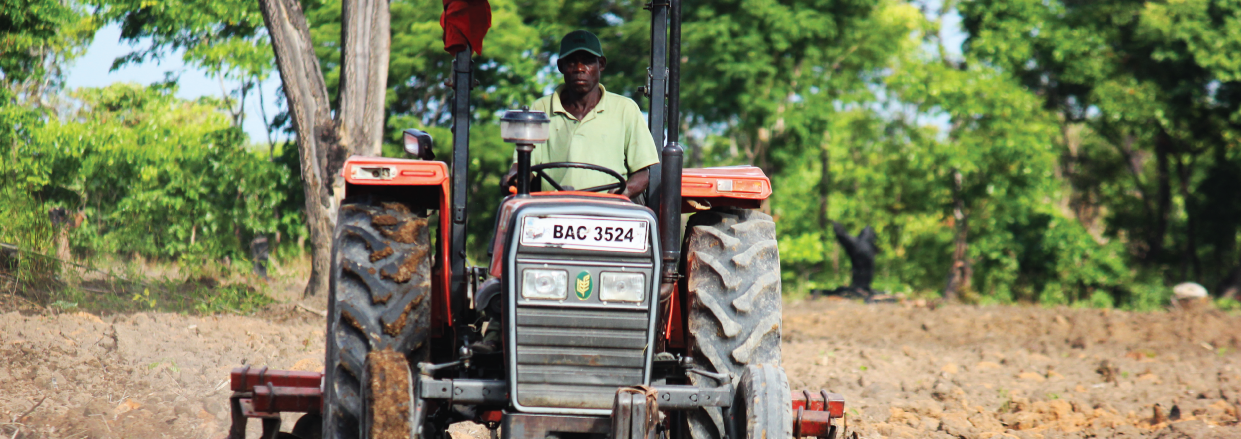 Agricultural Technology
Agricultural Technology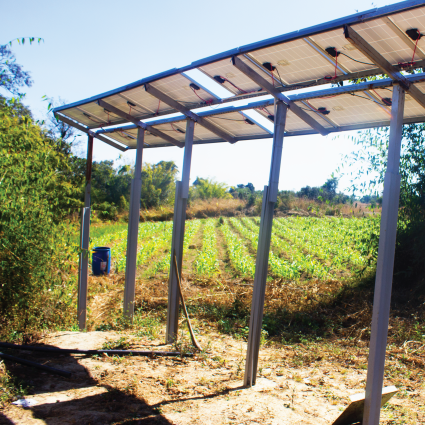 1. Mechanisation: Utilising lessons learned from previous industry efforts to drive smallholder mechanisation, Musika continues to support commercial players (agricultural equipment vendors, financial institutions and commercial market facilitators) to test new models of distribution for on-farm machinery (tractors, implements and harvesting equipment) and the necessary training, mentorship and oversight and after sales service that must accompany this process.
1. Mechanisation: Utilising lessons learned from previous industry efforts to drive smallholder mechanisation, Musika continues to support commercial players (agricultural equipment vendors, financial institutions and commercial market facilitators) to test new models of distribution for on-farm machinery (tractors, implements and harvesting equipment) and the necessary training, mentorship and oversight and after sales service that must accompany this process.
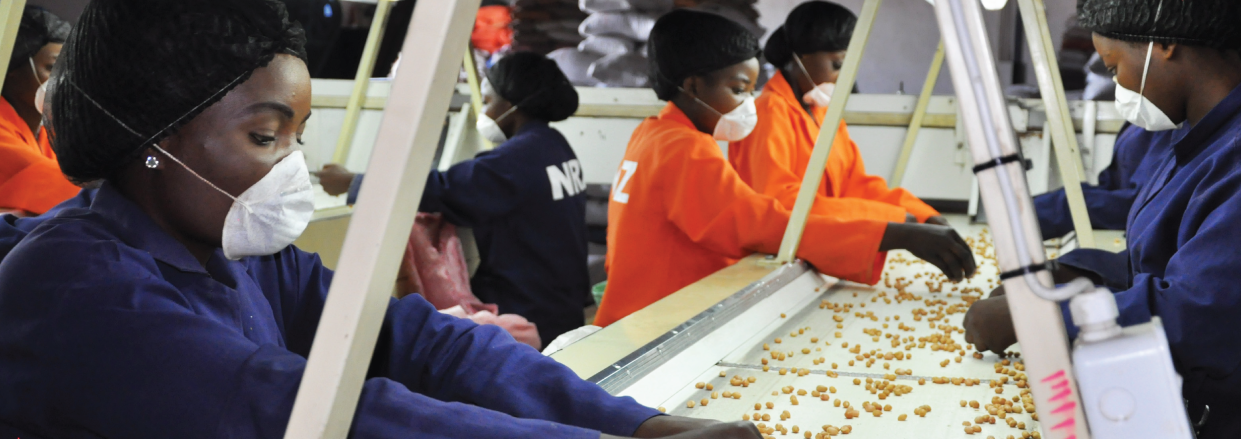

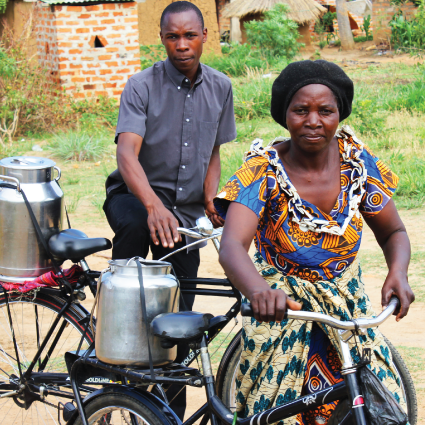 Studies have shown that despite smallholder farmers facing specific gender related constraints in accessing productive resources, the constraints are more acute among female farmers who also face cultural barriers in their access to, ownership of, and control over productive resources which are all critical elements in determining a farmer’s capacity to adopt such technologies. When disaggregated by gender lines, women account for over 70% of the rural agricultural workforce and produce the majority of food in both male headed households and female headed households.
Studies have shown that despite smallholder farmers facing specific gender related constraints in accessing productive resources, the constraints are more acute among female farmers who also face cultural barriers in their access to, ownership of, and control over productive resources which are all critical elements in determining a farmer’s capacity to adopt such technologies. When disaggregated by gender lines, women account for over 70% of the rural agricultural workforce and produce the majority of food in both male headed households and female headed households.
